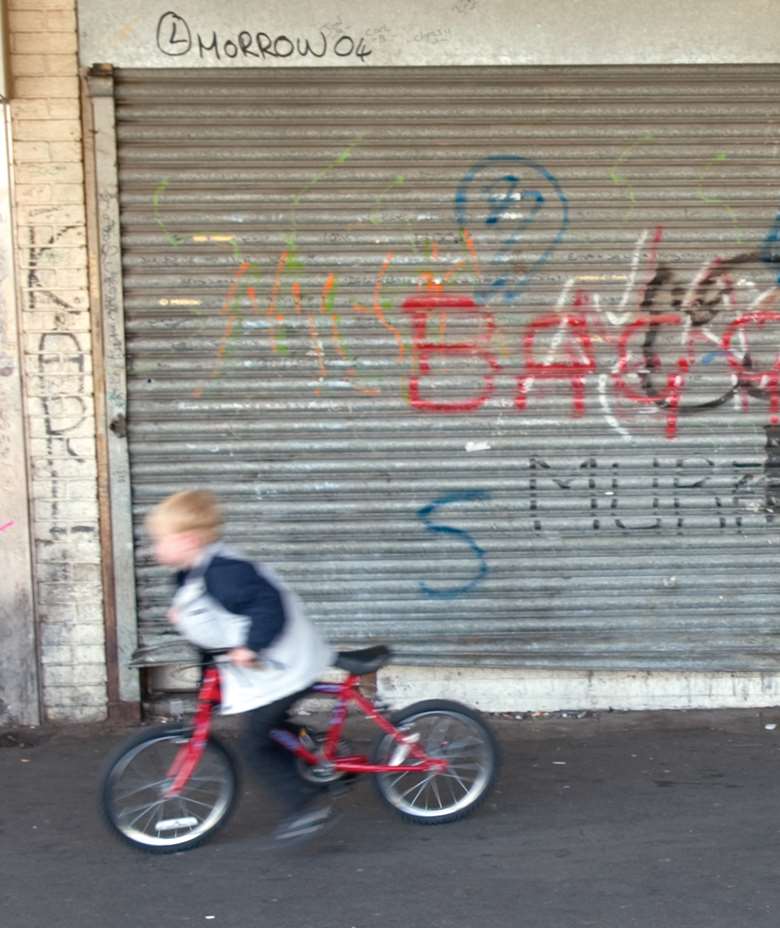'Nearly half' of UK children in poverty by 2021, UN expert warns
Joanne Parkes
Wednesday, May 22, 2019
Nearly one in two of the UK's children will be living in poverty by 2021 if the government remains in denial about the impact of cuts, predicts a United Nations report published today.

In his damning report on extreme poverty and human rights, leading UN poverty expert Philip Alston, describes the already bleak life prospects of millions of children and families as a "social calamity".
In the final version of the report, which follows his visit to the UK in November 2018, the special rapporteur compares welfare changes to the Victorian workhouse movement.
And he describes the results of the government's "austerity experiment" as now "crystal clear" - with 14 million people and four million children in poverty.
Calling for a "new vision" that "embodies compassion to end the unnecessary hardship", Alston adds: "The government's ‘work not welfare' mantra conveys the message that individuals and families can seek charity but that the state will no longer provide the basic social safety net to which all political parties had been committed since 1945.
- ADCS president vows action on poverty
- Deprivation is key factor affecting spending on children's services
"It is hard to imagine a recipe better designed to exacerbate inequality and poverty and to undermine the life prospects of many millions.
"But in response to this social calamity, the government has doubled down on its policies.
"The endlessly repeated response that there are more people in employment than ever before overlooks inconvenient facts: largely as a result of slashed government spending on services, close to 40 percent of children are predicted to be living in poverty two years from now; 16 percent of people over 65 live in relative poverty; and millions of those who are in-work are dependent upon various forms of charity to cope."
He continues: "It might seem to some observers that the Department of Work and Pensions has been tasked with designing a digital and sanitised version of the nineteenth century workhouse, made infamous by Charles Dickens, rather than seeking to respond creatively and compassionately to the real needs of those facing widespread economic insecurity in an age of deep and rapid transformation brought about by automation, zero-hour contracts and rapidly growing inequality."
The sector has welcomed the report, which Rachel Dickinson, president of the Association of Directors of Children's Services, said shines a light on the "bleak reality for many" with local authorities' hands tied by budget cuts.
Dickinson adds: "Behind these appalling statistics are vulnerable children and young people who are going to school hungry and unable to learn.
"Families are being forced to make tough decisions every day between eating or keeping warm and are unable to play a full part in our society.
"The report recognises that local authorities are ambitious about improving children and families' lives and outcomes, but our ability to do this is being impeded by a 50 per cent reduction in our budgets and rising levels of need in communities.
"We are increasingly using money from reserves or diverting funding away from resources and assets our communities rely on, such as children's centres, youth services and libraries, which provide a safety net for children and families before their problems reach crisis point. It's a vicious cycle.
"We cannot go on as we are, the stakes are too high. A national focus on tackling both the symptoms and root causes of poverty is long overdue, we urge government to lead this endeavour from the front as a matter of urgency. We need a cross party, cross departmental strategy that extends beyond a single parliamentary term. If we do nothing we will look back in shame."
Kevin Courtney, joint general secretary of the National Education Union, said also called on the government to reverse benefit freezes "that have left millions of children in poverty".
Courtney added: "It must also reverse the cuts to school budgets that are making it more and more difficult for schools to mitigate the damaging effect that poverty has on children's learning.
"A shocking prediction of this report is that almost one in two children in Britain will be living in poverty by 2021."
Courtney said Aston's allusions to Dickens "are not without justification".
"The government's actions have resulted in expectations that relative child poverty rates will increase by 7 per cent between 2015 and 2021.
"Teachers regularly tell us heart-breaking stories of children coming into school hungry and without adequate clothing.
"These conditions make it impossible for children to learn and greatly reduce their chances of securing an education that will help them break out of the poverty trap."
A DWP spokesman said: "The UN's own data shows the UK is one of the happiest places in the world to live, and other countries have come here to find out more about how we support people to improve their lives.
"Therefore this is a barely believable documentation of Britain, based on a tiny period of time spent here. It paints a completely inaccurate picture of our approach to tackling poverty.
"We take tackling poverty extremely seriously which is why we spend £95 billion a year on welfare and maintain a state pension system that supports people into retirement.
"All the evidence shows that full-time work is the best way to boost your income and quality of life, which is why our welfare reforms are focused on supporting people into employment and we introduced the National Living Wage, so people earn more in work."




